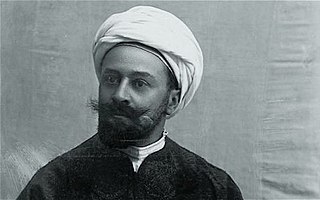History of the family and raising to nobility
Salomon Oppenheim founded the banking firm Sal. Oppenheim in the late 18th century. Until its sale in 2009, Sal. Oppenheim was the largest privately owned investment/banking house in Europe, with assets of €348 billion. [2] [3]
The Oppenheim family also co-founded the German Colonia-Versicherung and sold their majority stake for 3 billion DM in 1989. [4] 820 million DM were used to increase the equity of the bank, while the rest (over 2 billion DM) was paid out to the family. [5]
In 1867, the family received nobility in Austria with the title of Baron and a year later, in 1868 they were admitted to nobility of Prussia, also with the title of Freiherr.

The House of Castell is a German noble family of mediatised counts of the old Holy Roman Empire. In 1901, the heads of the two family branches, Castell-Castell and Castell-Rüdenhausen, were each granted the hereditary title of Prince by Luitpold, Prince Regent of Bavaria.

Karl Friedrich Alfred Heinrich Ferdinand Maria Graf Eckbrecht von Dürckheim-Montmartin was a German diplomat, psychotherapist and Zen master. A veteran of World War I, he was introduced to Zen early in life. After obtaining a doctorate in psychology, he became an avid supporter of the Nazi Party. Following World War II he was imprisoned in Japan which transformed him spiritually. Upon returning to Germany he became a leading proponent of Western esotericism, synthesizing teachings from Christian mysticism, depth psychology and Buddhism.

Sal. Oppenheim was a German private bank founded in 1789 and headquartered in Cologne, Germany. It provided asset management solutions for wealthy individual clients and institutional investors. In 2009, the bank became a subsidiary of Deutsche Bank. In 2017, Deutsche Bank decided to discontinue the Sal. Oppenheim brand and to fully integrate their business, which was officially completed on 30 June 2018.

Baron Max von Oppenheim was a German lawyer, diplomat, ancient historian, and archaeologist. He was a member of the Oppenheim banking dynasty. Abandoning his career in diplomacy, he discovered the site of Tell Halaf in 1899 and conducted excavations there in 1911–13 and again in 1927–29. Bringing many of his finds to Berlin, he exhibited them in a private museum in 1931. This was destroyed by Allied bombing in World War II; however, most of the findings were recently restored and have been exhibited again at Berlin and Bonn.

Salomon Oppenheim Jr. was a German Jewish banker, and the founder of the Sal. Oppenheim private bank.
Count Jefferson von Pfeil und Klein-Ellguth is a German nobleman and a banker.

Anton von Padua Alfred Emil Hubert Georg Graf von Arco auf Valley, commonly known as Anton Arco-Valley, was a German far-right activist, Bavarian nationalist and nobleman. He assassinated socialist Bavarian prime minister Kurt Eisner, the first premier of the People's State of Bavaria, on 21 February 1919.

Hauck & Aufhäuser Privatbankiers AG is a private bank based in Frankfurt am Main. Hauck & Aufhäuser also maintains offices in Munich, Hamburg, Düsseldorf, Cologne, London, Luxembourg, Nanjing (China) and Shanghai (China) and focuses on the advisory and asset management of private and corporate clients as well as institutional investors and on cooperation with independent asset managers. The bank was created in 1998 from the merger of Georg Hauck & Sohn Bankiers in Frankfurt am Main and Bankhaus H. Aufhäuser in Munich. Since 2016 it has been part of the Chinese conglomerate Fosun. In March 2020 Hauck & Aufhäuser announced its intention to buy Bankhaus Lampe KG from the Oetker Group. The purchase is subject to approval by the competition authorities.

The House of Franckenstein is the name of a feudal, Franconian noble family in Germany, descendants from the Dynasts of the Breuberg family; offsprings of the Lords of Lützelbach from Höchst im Odenwald.
Events in the year 1902 in Germany.

Franjo Pooth is a German businessman and former CEO of Maxfield.
Patrick Alexander Hubertus Count of Faber-Castell also Patrick Graf von Faber-Castell is a German businessman and socialite.

The House of Faber-Castell, originating from Stein near Nuremberg, Germany, is the name of an entrepreneurial noble family, morganatic branch of the House of Castell-Rüdenhausen, which founded the Faber-Castell AG in 1761 and the Nürnberger Versicherung in 1884. A.W. Faber, the original name of the company, is the oldest company brand in the USA.
Caroline Gotzens is an aristocratic German-Swiss industrial heiress. She is a family member of the Cologne-based banking dynasty Oppenheim, as well as of the Frankish pencil dynasty Faber-Castell.
Hubertus Alexander Wolfgang Rüdiger Emanuel Wilhelm Count von Faber-Castell
Anton-Wolfgang "Toni" Lothar Andreas Graf von Faber-Castell was a German entrepreneur and member of the Faber-Castell industrial and noble family. He was the eighth-generation chairman of the board of the stationery manufacturer Faber-Castell for nearly 40 years.

M. A. Rothschild & Söhne was a German family-controlled bank based in Frankfurt, formally founded in 1810 by Mayer Amschel Rothschild on the basis of the banking business he had developed since 1766. It was eventually liquidated in 1901.
This page is based on this
Wikipedia article Text is available under the
CC BY-SA 4.0 license; additional terms may apply.
Images, videos and audio are available under their respective licenses.










